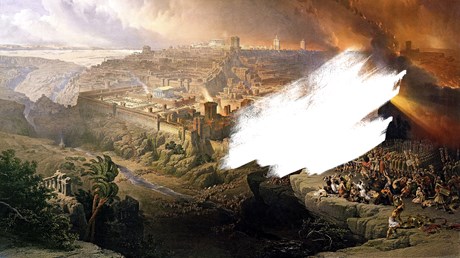Christians throughout the ages face exile—but not in the way we often think of it.

This piece was adapted from Russell Moore’s newsletter. Subscribe here.
A week or so ago, Christianity Today published an essay by Canadian pastor Jacob Birch, arguing that “No, Western Christians Are Not in Exile.”
Birch is exactly right that exile language can betray some of the worst impulses of Western evangelicalism. But at the same time, I believe the language of exile is exactly what the Bible offers us to combat all that.
Birch starts by noting that many white evangelical churches today are accustomed to hearing themselves described as exiles, mostly in light of shifts toward secularization and the marginalization of Christianity. No doubt that is true in certain areas of the country and continent (including his Canadian context).
But alas, in my own Bible Belt context, the idea of “exile” seems absent altogether. Instead, ironically enough, I’ve found the metaphor Birch proposes—that of “occupation”—tends to be the governing analogy, even if not articulated in those words.
Occupation, after all, implies a hostile force has invaded one’s own territory, holding a people hostage in their own land. This is, at several points, a reality in the biblical story of the people of God. It is why, for instance, the religious leaders’ question to Jesus about whether to pay taxes to Caesar was so charged.
According to the mindset of many first-century Jews, saying yes to that question would be to affirm Rome’s occupation of their land—which they believed should rightly be governed not by a puppet government under Caesar but by the house of David. Jesus looked past this temporal occupation toward a deeper, more primal one—that of overtaking the ...
from Christianity Today Magazine
Umn ministry


.gif)

.gif)
.gif)
